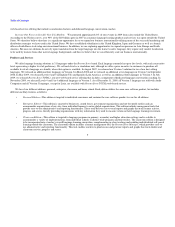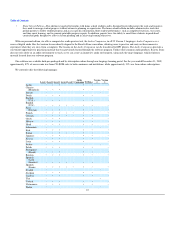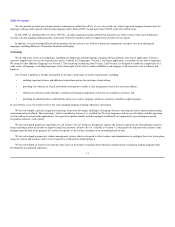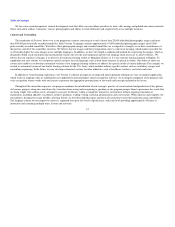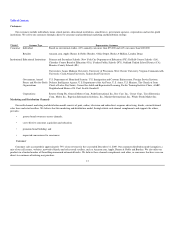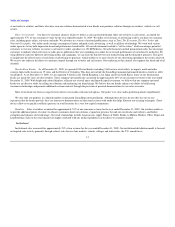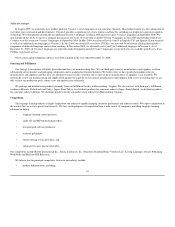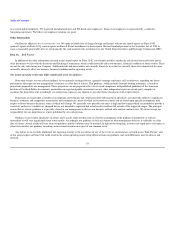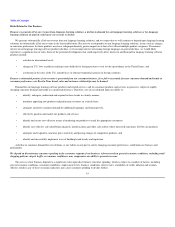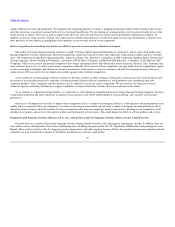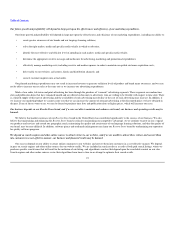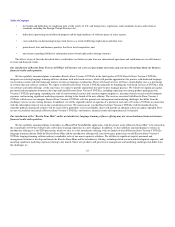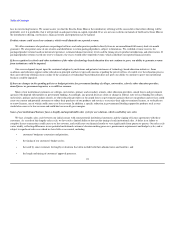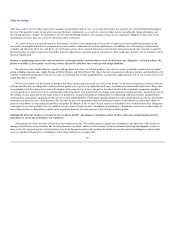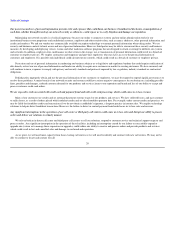Rosetta Stone 2009 Annual Report Download - page 21
Download and view the complete annual report
Please find page 21 of the 2009 Rosetta Stone annual report below. You can navigate through the pages in the report by either clicking on the pages listed below, or by using the keyword search tool below to find specific information within the annual report.
Table of Contents
Risks Related to Our Business
Because we generate all of our revenue from language learning solutions, a decline in demand for our language learning solutions or for language
learning solutions in general could cause our revenue to decline.
We generate substantially all of our revenue from our language learning solutions, and we expect that we will continue to depend upon language learning
solutions for substantially all of our revenue in the foreseeable future. Because we are dependent on our language learning solutions, factors such as changes
in consumer preferences for these products may have a disproportionately greater impact on us than if we offered multiple product categories. If consumer
interest in our language learning software products declines, or if consumer interest in learning foreign languages in general declines, we would likely
experience a significant loss of sales. Some of the potential developments that could negatively affect interest in and demand for language learning software
products include:
a decline in international travel;
changes in U.S. laws or policies making it more difficult for foreign persons to visit or take up residence in the United States; and
a reduction in the roles of the U.S. armed forces or other governmental agencies in foreign countries.
Because a substantial portion of our revenue is generated from our consumer business, if we fail to accurately forecast consumer demand and trends in
consumer preferences, our Rosetta Stone brand, sales and customer relationships may be harmed.
Demand for our language learning software products and related services, and for consumer products and services in general, is subject to rapidly
changing consumer demand and trends in consumer preferences. Therefore, our success depends upon our ability to:
identify, anticipate, understand and respond to these trends in a timely manner;
introduce appealing new products and performance features on a timely basis;
anticipate and meet consumer demand for additional languages and learning levels;
effectively position and market our products and services;
identify and secure cost-effective means of marketing our products to reach the appropriate consumers;
identify cost-effective sales distribution channels, kiosk locations and other sales outlets where interested consumers will buy our products;
anticipate and respond to consumer price sensitivity and pricing changes of competitive products; and
identify and successfully implement ways of building brand loyalty and reputation.
A decline in consumer demand for our solutions, or any failure on our part to satisfy changing consumer preferences, could harm our business and
profitability.
We depend on discretionary consumer spending in the consumer segment of our business. Adverse trends in general economic conditions, including retail
shopping patterns, airport traffic or consumer confidence, may compromise our ability to generate revenue.
The success of our business depends to a significant extent upon discretionary consumer spending, which is subject to a number of factors, including
general economic conditions, consumer confidence, employment levels, business conditions, interest rates, availability of credit, inflation and taxation.
Adverse trends in any of these economic indicators may cause consumer spending to decline further,
19
•
•
•
•
•
•
•
•
•
•
•


